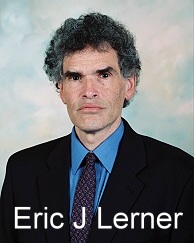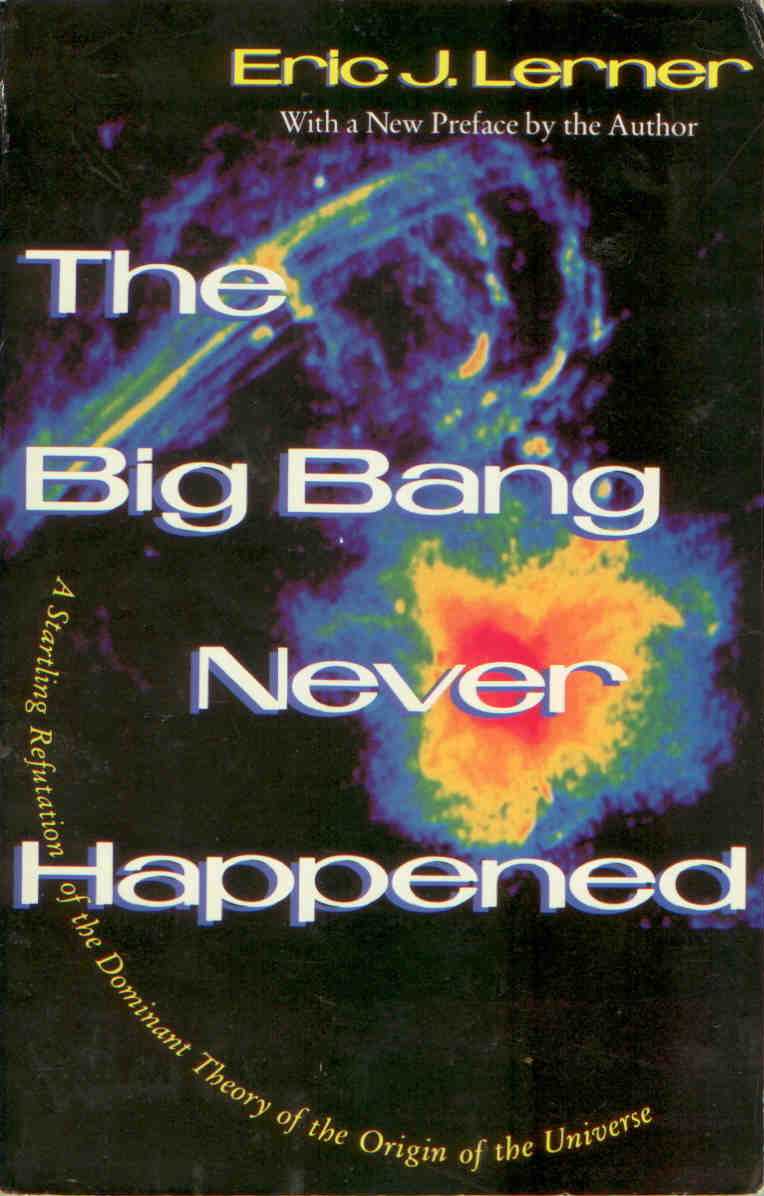Eric J. Lerner (Books)
by Eric J. Lerner, Jose Borges de Almeida
Pages: 327
Publisher: American Institute of Physics
Year: 2006
ISBN: 9780735402966
ISBN: 978-0735402966
ISBN: 0735402965
Pages: 327
Publisher: American Institute of Physics
Year: 2006
ISBN: 9780735402966
ISBN: 978-0735402966
ISBN: 0735402965
CCC-I considered the present understanding of the universe in light of challenges to the conventional cosmological model. Participants presented observations that are incompatible with the conventional model and discussed conceptual difficulties and alternative cosmologies without a big bang.
by Eric J. Lerner
Pages: 496
Publisher: Vintage
Year: 1992
ISBN: 067974049X
ISBN: 978-0679740490
Websites: www.bigbangneverhappened.org
Pages: 496
Publisher: Vintage
Year: 1992
ISBN: 067974049X
ISBN: 978-0679740490
Websites: www.bigbangneverhappened.org
From Publishers Weekly
Plasma physicist Lerner opens one of science's inner rooms to a popular audience in this headline-making history of time, space and the humanistic sociology of science. Illustrated.
Copyright 1992 Reed Business Information, Inc.
From Library Journal
From Steven Weinberg's The First Three Minutes (Basic, 1976. o.p.; 1988. pap.) to Stephen Hawking's A Brief History of Time ( LJ 4/15/88), numerous science popularizations have expounded the Big Bang Theory for the origin of the universe as indisputable fact. Readers of those books will find this one startling and intriguing. Lerner, a plasma physicist, points out flaws in the Big Bang model and proposes an alternative theory: an eternal, self-sustaining "plasma" universe where electromagnetic fields within conducting gases provide other, simpler explanations for observed phenomena. His contention that the Big Bang is merely a repackaged creation myth is presumptuous, but well argued. To present a current scientific controversy to a general audience risks, on one hand, misleading the public and, on the other, circumventing the peer review process. This book, however, makes valid points in a convincing manner and does neither. Recommended for general science collections.
- Gregg Sapp, Montana State Univ. Libs., Bozeman
Plasma physicist Lerner opens one of science's inner rooms to a popular audience in this headline-making history of time, space and the humanistic sociology of science. Illustrated.
Copyright 1992 Reed Business Information, Inc.
From Library Journal
From Steven Weinberg's The First Three Minutes (Basic, 1976. o.p.; 1988. pap.) to Stephen Hawking's A Brief History of Time ( LJ 4/15/88), numerous science popularizations have expounded the Big Bang Theory for the origin of the universe as indisputable fact. Readers of those books will find this one startling and intriguing. Lerner, a plasma physicist, points out flaws in the Big Bang model and proposes an alternative theory: an eternal, self-sustaining "plasma" universe where electromagnetic fields within conducting gases provide other, simpler explanations for observed phenomena. His contention that the Big Bang is merely a repackaged creation myth is presumptuous, but well argued. To present a current scientific controversy to a general audience risks, on one hand, misleading the public and, on the other, circumventing the peer review process. This book, however, makes valid points in a convincing manner and does neither. Recommended for general science collections.
- Gregg Sapp, Montana State Univ. Libs., Bozeman




